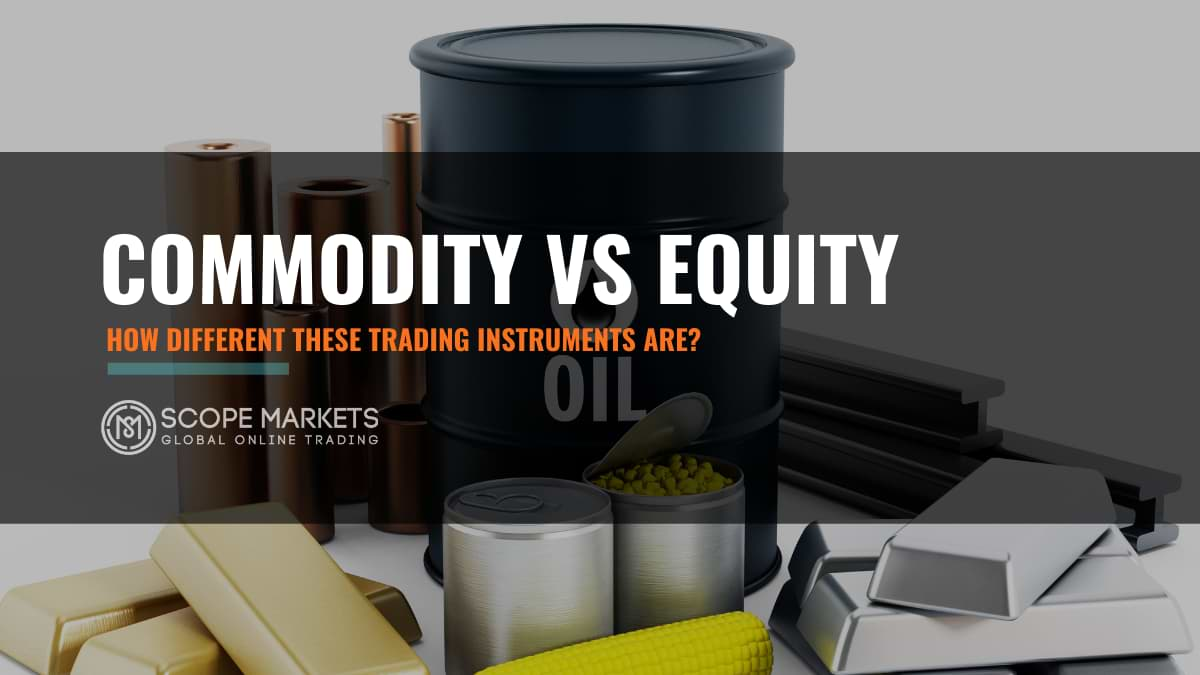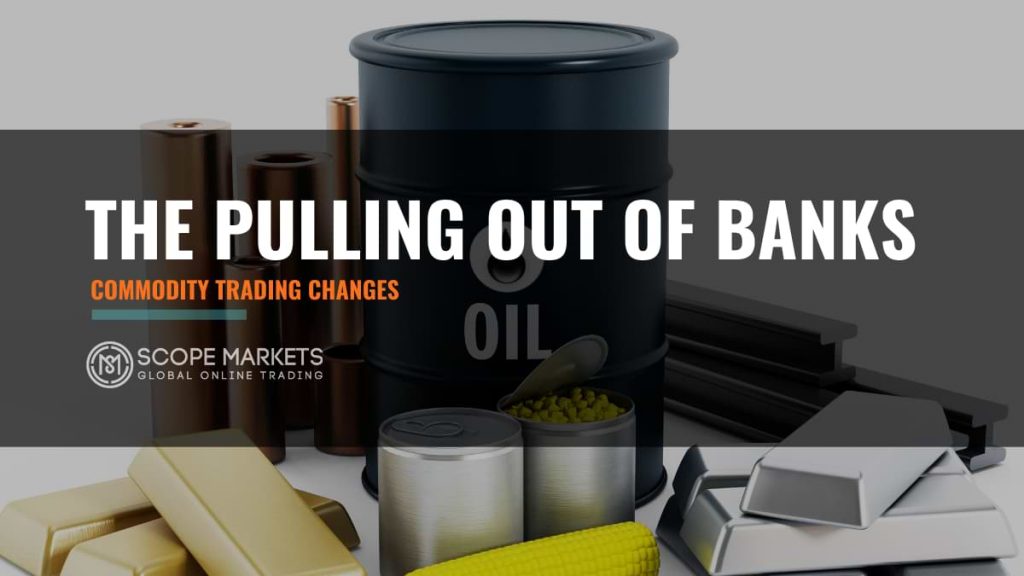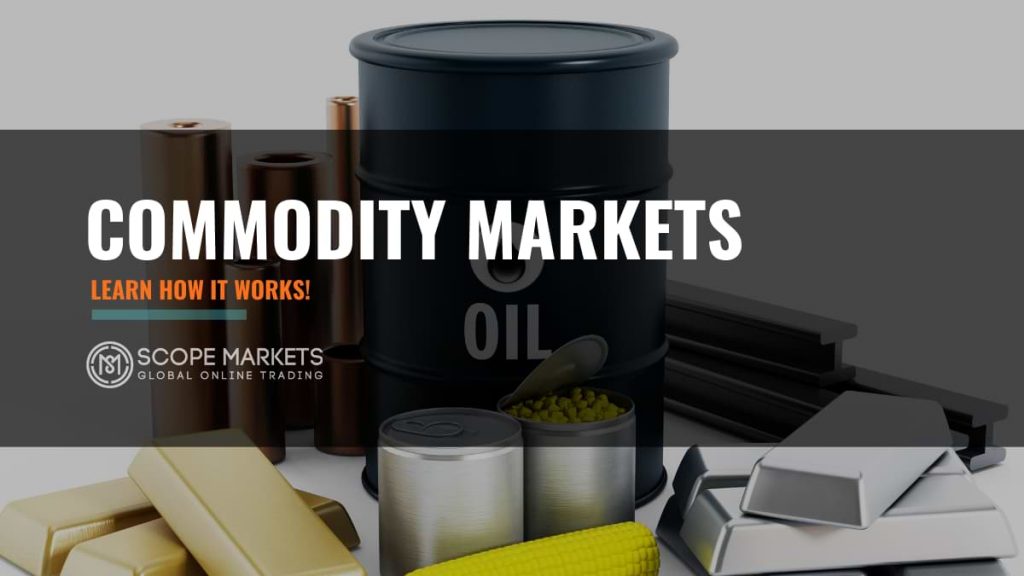How Is Commodity Trading Different From Equity Trading?

Table of Content
Financial markets comprise various financial instruments that investors can use to invest their funds and finances. It may not be easy to start investing in different markets when you don’t know how they differ.
This article sheds more light on the main differences between equity and commodity-trading and how to trade on these two mercantile markets. Various contracts like derivatives are used in financial assets. The main objective of any investment is to make a profit, which requires sufficient knowledge of the available financial assets available to financiers.
What you Need to Know
Both commodity trading and equity trading are types of financial assets that financiers can evaluate when weighing on investment options. Although these two instruments are not the only financial assets, they are the most popular ones. Many people venture on equity since it’s the common investment option in the financial world.
The features, advantages, regulations and disadvantages of a financial asset determine whether it’s a good investment option for a particular investor. Several factors affect commodity trading and equity trading; therefore, a financier needs to make fundamental analysis before making an investment.
The best way to understand how commodity trading is different from equity trading is to breakdown the different characteristics of equity and article of trade.
more below!
What are the Main Differences Between Articles of Trade and Equities?
- Holder: In equity trading, a shareholder is the equity holder, which means he or she possesses equity. However, in commodity trading, an option holder owns an article of trade.
- Ownership: Equity holders own the company partially since they hold the company’s stock. On the other hand, the holder of an article of trade is not in any way a company owner.
- Volatility: In comparison to other monetary markets, the market of articles of trade is highly volatile while an equity market isn’t
- Related risks: Many people opt to finance equity since they consider it less risky. Trading on an article of trade, on the other hand, is a risky investment, especially on the clearing process. Financiers who are starting on investment decisions should consider less risky investments since they are not so experienced at investment policies and may have fewer finances to finance with.
- Dividend: A company owner is eligible for getting a dividend from the company as a return. Therefore, an equity holder, being a partial company owner, has a right to receive the dividend as a return. However, an article of trade holder does not in any way own a company, therefore, is not entitled to any dividend returns.
- Exchange-traded: You can trade an equity share on different exchanges. In the same way, articles of trade can be transacted on different exchanges. However, transaction exchanges on articles of trade may vary from time to time depending on the rules and regulations of each exchange.
- Expiry: An equity share does not have an expiration date and is always valid as long as an equity holder owns the shares. On the other hand, commodity shares have an ending date since they become invalid at a pre-set date subject to the item in question and the market.
- Liquidity: In comparison to other financial assets, equity is easily convertible to cash while articles of trade are quite difficult to convert to cash.
- Time frame: An equity contract lasts for a long time since it is a long-term contract. Depending on the equity’s nature, one may hold to equity for as long as a decade or more. Currently, people hold on their employer-given equity more than other shares.
A contract on trade articles is a short-term contract; therefore, it lasts for a short period of time. Depending on the case basis, a contract on trade articles may expire in as little time as after thirty days. An article of the trade time frame is therefore concise in comparison to an equity contract which may last for more than ten years. - Period end valuation: The records in price variation of equity is in a profit and loss account. On the other hand, period-end price variations in articles of trade are recorded on the income statement. However, when the ending date approaches, the records of items of trade now feature in the profit and loss account.
- Lot size: When it comes to trade items, lot sizes depend on the type of article of trade. However, there are no lot sizes in association with shares on equity.
- Regulations: There are few regulations regarding the equity market compared to other financial assets. On the other hand, articles of trade are in high supervision; therefore, so many rules are set to facilitate how they operate. Actually, articles of trade are the most strict and technical financial assets operating today.
- Margin requirement: Apart from purchasing the equity on market price, there is no additional on margin constraint like initial margin. However, articles of trade have certain margin requirements depending on trends in the market, the company as well as the item of trade.
- Diversification: There is less diversification in the equity market since the price of equity relates to the price of another equity in one way or another. On the other hand, there is no price relationship in items of trade since each item of trade has a specific price on its own, resulting in higher diversification.
Commodity Trading Vs. Equity trading
There are different ways to finance both equity trading and commodity trading. Trading may occur once like intraday in day-trading. You may choose to make investments through futures trading where a futures contract is used finance in commodity futures.
These markets offer an opportunity for traders to fully participate in the future market. A futures contract is available in different categories, including bond futures, oil futures, gold futures, wheat futures, and corn futures, among other trade futures.
Trades on the market are controlled by the National Futures Association. Investing in commodities is profitable, although different regulators must be adhered to. Moreover, technical analysis and commitment of traders determine how successful one will be.
Futures and Prices
A trader engages in commodity futures trading in order to diversify his portfolio by taking advantage of any financial news commentary. Commodity futures trading commission controls operations in commodities futures. Trading commodities on the commodity market include agricultural commodities, which are mainly soft commodities like soybeans. Besides, you may opt to venture on energies like crude oil bushel, gasoline and crude.
You may use a commodity broker to determine commodity prices when you want to trade commodities. Apart from agricultural products, mainly softs like soybean, you may engage in livestock trading, such as feeder cattle. Another option is on gold and silver, platinum, electronic trading and trading software. The main principle governing commodities trading is supply-and-demand since there is price risk in case the demand is higher than supply.
Different currencies are used in commodities exchange. The trading commission governs different trading systems. It also ensures online trading is through a legit trading account. You trade on commodities and equity trading through futures products, futures exchanges, Eurodollar and Eurodollar futures in the futures market. Futures trade as single stock futures in the future trade.
However, you need accurate and adequate market data and analysis to come up with a good trading strategy. This will help you thrive in different trading platforms, even in the global market.
How to go about it
If you have traded before, you understand that to trade and thrive on any trading platform, like commodity trading or commodity exchange, you need to have options on futures and engage on forex. Futures and options as well as forward contract hedge risk. Risk hedging is indicative of a good trading system.

Another way to trade is by venturing on spot-market where there is the immediate cash settlement. Contrary to futures markets, buyers and sellers in this market buy or sell at spot-price.
A speculator trade in the market occurs by paying attention to market information and changes in commodity-price. If you decide to trade on futures, be aware of interest rate futures as you sell futures. Futures prices are also important for futures traders and any futures trader involved in the futures exchange. Trading futures like futures options and index futures make the financial-futures.
You may also trade on a derivative through the Nymex, NASDAQ, Comex or Chicago Mercantile Exchange, CME group or ETFs as an investment option.
Analysis of past-performance
Market speculation, analysing past performance and COT report of financial assets is important in commodity trading. Whether you are investing in metal exchange like gold silver, futures option or gold futures contract, you must have a brokerage account from a brokerage firm if you are not using a commodities broker.
In the case of bullish, even if the share price changes start from cents, you may apply for solicitation. Expand your investment through currency futures, stock index futures, managed-futures, option contract, spreads, swaps both in the option market, commodities market and stock-market. However, utilize stock indices and the available indexes on Dow Jones to evaluate the market.
Manipulation of stock futures to work in your favour may also help to increase your profit. However, ensure you follow the rules set by the board of trade and the commodity exchange act as you go about it. Utilise the advantage of a commodity trading advisor on commodity pool to get financial advice and make investments even if it’s from leveraged funds.
In a Nutshell
Listen to speculative ideas from other commodity traders, especially in trade commodity while commodity trading and learn on any available open interest. When the market is highly risky, identify the best investments like the treasury. Ensure there are deliverable results in options trading, futures trading, futures and options trading, and the oil market like crude oil futures before making an investment.
It is also important that you understand charting and how to predict bearishly. Adhere to all stock index, commodity index, as well as exchange act standardized rules.
If you found this commodity trading post educational, you can share it with your friends and family through social media platforms like Youtube, WhatsApp, Facebook and Twitter.
References:
Enrich broking Commodity equity
Disclaimer: This material is a marketing communication and shall not in any case be construed as an investment advice, investment recommendation or presentation of an investment strategy. The marketing communication is prepared without taking into consideration the individual investors personal circumstances, investment experience or current financial situation. Any information contained therein in regardsto past performance or future forecasts does not constitute a reliable indicator of future performance, as circumstances may change over time. Scope Markets shall not accept any responsibility for any losses of investors due to the use and the content of the abovementioned information. Please note that forex trading and trading in other leveraged products involves a significant level of risk and is not suitable for all investors.









